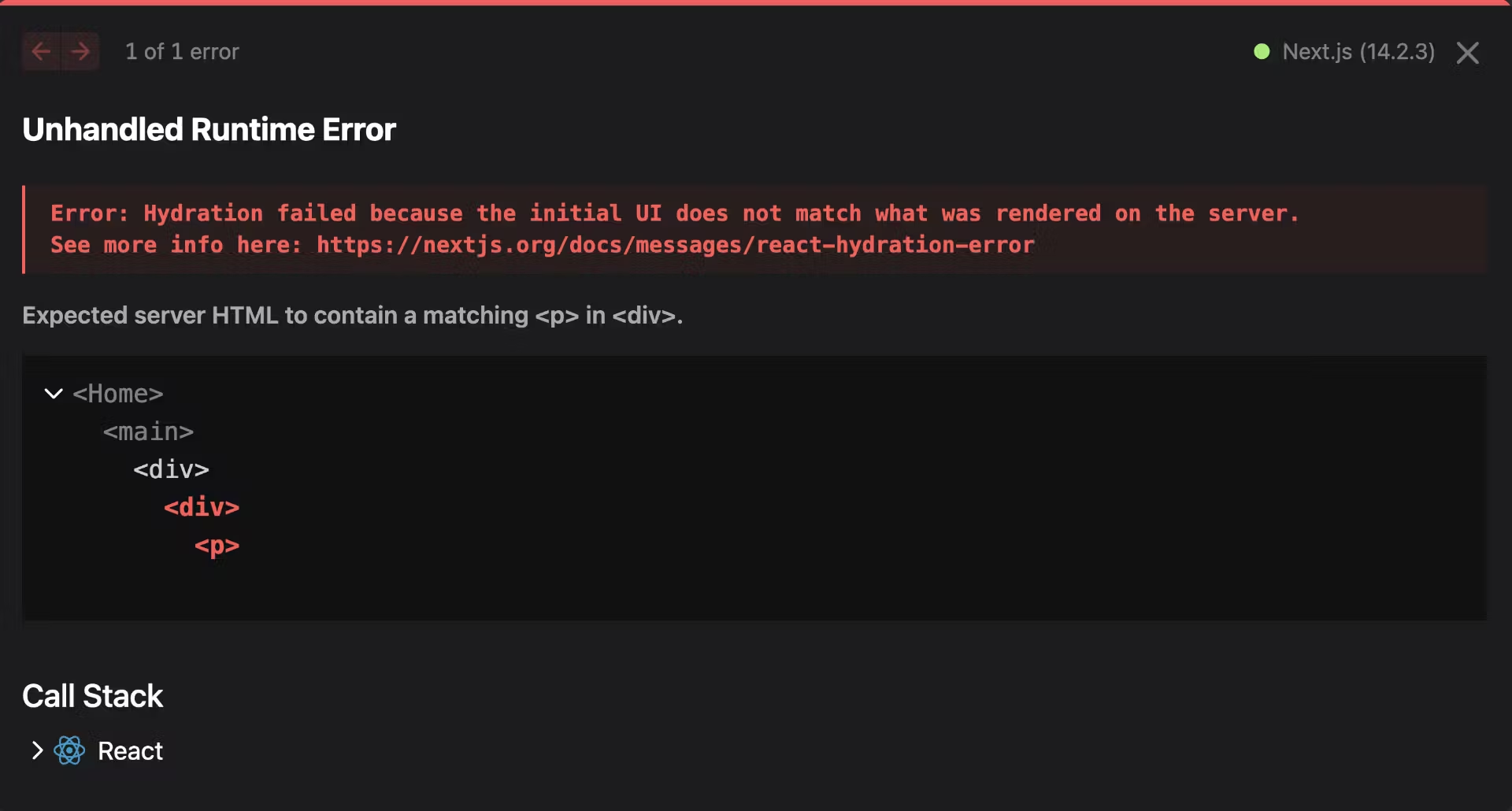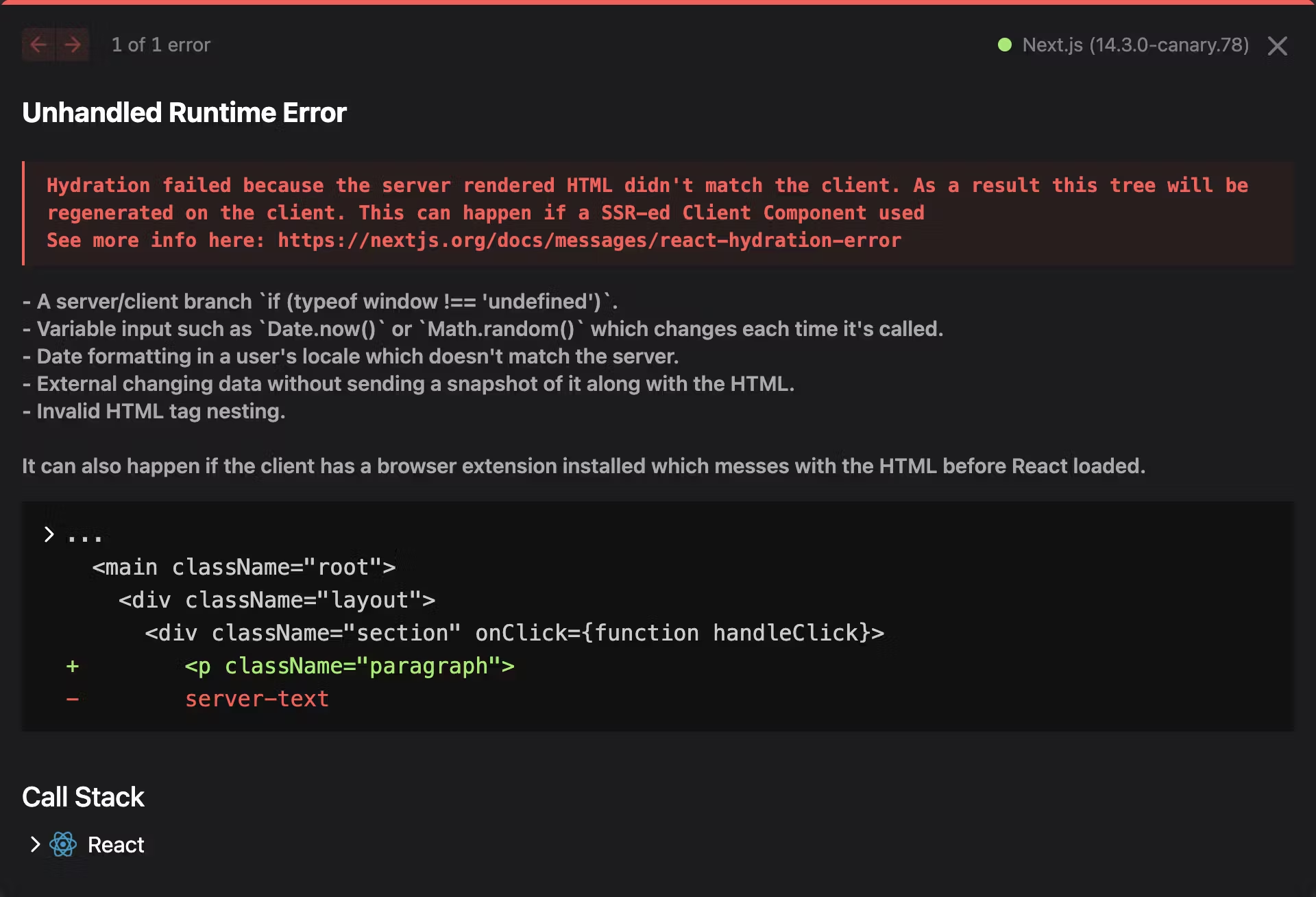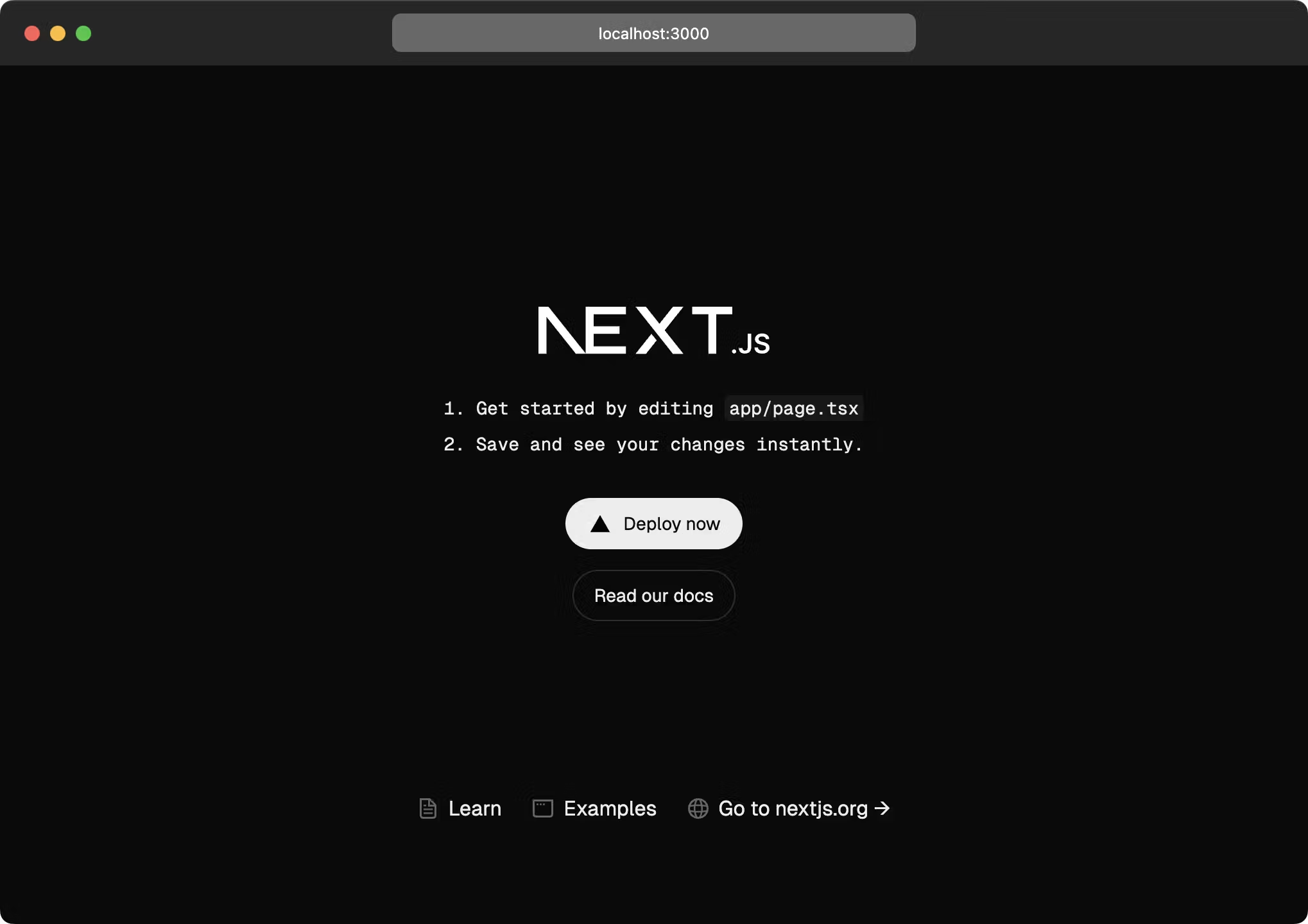- Published on
Next.js 15 Release Candidate: New Features and Enhancements
- Authors

- Name
- Shaheer Mansoor
- @Twitter/ShaheerMansoor2
Table of Contents
Key Highlights
Next.js 15 RC includes support for React 19 RC, bringing new client and server features, such as Actions. Note that some third-party libraries may not yet be compatible with React 19.
React Compiler (Experimental)
The new experimental React Compiler, developed by Meta, optimizes code by understanding JavaScript semantics and React rules. This reduces the need for manual memoization with hooks like useMemo and useCallback, simplifying code maintenance. To enable the compiler, install babel-plugin-react-compiler and update your next.config.js:
Install babel-plugin-react-compiler:
npm install babel-plugin-react-compiler
Then, add experimental.reactCompiler option in next.config.js:
const nextConfig = {
experimental: {
reactCompiler: true,
},
};
module.exports = nextConfig;
Optionally, you can configure the compiler to run in "opt-in" mode as follows:
const nextConfig = {
experimental: {
reactCompiler: {
compilationMode: 'annotation',
},
},
};
module.exports = nextConfig;
Hydration Error Improvements
Next.js 15 enhances hydration error messages by displaying the source code of errors and providing suggestions for fixes, building on improvements from version 14.1.
Example -> this was a previous hydration error message in Next.js 14.1:


Caching Updates
Caching defaults have been revised:
fetch Requests are no longer cached by default:
Next.js uses the Web fetch API cache option to configure how a server-side fetch request interacts with the framework's persistent HTTP cache:
fetch('https://...', { cache: 'force-cache' | 'no-store' });
- no-store - fetch a resource from a remote server on every request and do not update the cache
- force-cache - fetch a resource from the cache (if it exists) or a remote server and update the cache
In Next.js 14, force-cache was used by default if a cache option was not provided, unless a dynamic function or dynamic config option was used.
In Next.js 15,
- fetch Requests: Now default to no-store, meaning no caching unless explicitly specified.
- GET Route Handlers: Also default to no caching.
- Client Router Cache: No longer caches Page components by default, but you can opt-in for previous behavior using the staleTimes configuration.
Partial Prerendering (Experimental)
Partial Prerendering (PPR) allows combining static and dynamic rendering on the same page. Opt into PPR incrementally by setting the experimental_ppr config in specific layouts or pages:
Next.js currently defaults to static rendering unless you use dynamic functions such as cookies(), headers(), and uncached data requests. These APIs opt an entire route into dynamic rendering. With PPR, you can wrap any dynamic UI in a Suspense boundary. When a new request comes in, Next.js will immediately serve a static HTML shell, then render and stream the dynamic parts in the same HTTP request.
import { Suspense } from "react"
import { StaticComponent, DynamicComponent } from "@/app/ui"
export const experimental_ppr = true
export default function Page() {
return {
<>
<StaticComponent />
<Suspense fallback={...}>
<DynamicComponent />
</Suspense>
</>
};
}
Enable it in next.config.js:
const nextConfig = {
experimental: {
ppr: 'incremental',
},
};
module.exports = nextConfig;
next/after (Experimental)
The new after API allows scheduling tasks to run after a response has finished streaming, ideal for non-essential tasks like logging or analytics, in order for secondary tasks to run without blocking primary response:
import { unstable_after as after } from 'next/server';
import { log } from '@/app/utils';
export default function Layout({ children }) {
// Secondary task
after(() => {
log();
});
// Primary task
return <>{children}</>;
}
Enable it in next.config.js:
const nextConfig = {
experimental: {
after: true,
},
};
module.exports = nextConfig;
create-next-app Enhancements
The create-next-app tool features a new design and a prompt to enable Turbopack for local development. Use the --turbo flag for Turbopack and the --empty flag for a minimal setup.
npx create-next-app@rc --turbo
npx create-next-app@rc --empty

Bundling & Optimizing External Packages (Stable)
External packages are now bundled by default in the App Router. Use the new bundlePagesRouterDependencies option for the Pages Router and opt-out specific packages with serverExternalPackages:
const nextConfig = {
// Automatically bundle external packages in the Pages Router:
bundlePagesRouterDependencies: true,
// Opt specific packages out of bundling for both App and Pages Router:
serverExternalPackages: ['package-name'],
};
module.exports = nextConfig;
Breaking Changes and Improvements
Breaking:
- Minimum React version is now 19 RC.
- Removed
squooshin favor ofsharpfornext/image. - next/image: Changed default
Content-Dispositiontoattachment. - next/image: Error when
srchas leading or trailing spaces. - Middleware: Apply
react-servercondition to limit unrecommended react API imports. - next/font: Removed support for external
@next/fontpackage. - next/font: Removed
font-familyhashing. - Caching:
force-dynamicwill now set ano-storedefault to the fetch cache. - Config: Enable
swcMinify(PR),missingSuspenseWithCSRBailout(PR), andoutputFileTracing(PR) behavior by default and remove deprecated options. - Remove auto-instrumentation for Speed Insights (must now use the dedicated @vercel/speed-insights package).
Improvements:
- Align sitemap URLs in development and production.
- Metadata: Updated environmental variable fallbacks for
metadataBasewhen hosted on Vercel. - Fix tree-shaking with mixed namespace and named imports from
optimizePackageImports. - Parallel Routes: Provide unmatched catch-all routes with all known params.
- Config
bundlePagesExternalsis now stable and renamed tobundlePagesRouterDependencies. - Config
serverComponentsExternalPackagesis now stable and renamed toserverExternalPackages. - create-next-app: New projects ignore all
.envfiles by default. - For more details and other minor changes, refer to the Next.js 15 Vercel Article.
- Upgrade Guide How to upgrade to Next 15
Thank you so much for reading <3